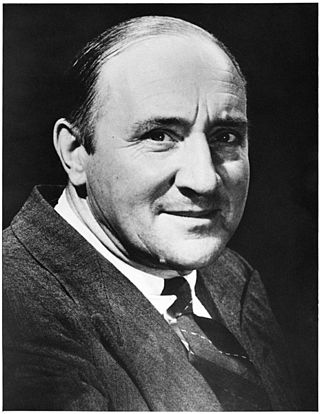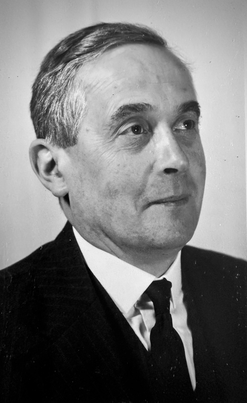Related Research Articles

Forensic pathology is pathology that focuses on determining the cause of death by examining a corpse. A post mortem examination is performed by a medical examiner or forensic pathologist, usually during the investigation of criminal law cases and civil law cases in some jurisdictions. Coroners and medical examiners are also frequently asked to confirm the identity of remains.

Sir Bernard Henry Spilsbury was a British pathologist. His cases include Hawley Crippen, the Seddon case, the Major Armstrong poisoning, the "Brides in the Bath" murders by George Joseph Smith, the Crumbles murders, the Podmore case, the Sidney Harry Fox matricide, the Vera Page case, and the murder trials of Louis Voisin, Jean-Pierre Vaquier, Norman Thorne, Donald Merrett, Alfred Rouse, Elvira Barney, Toni Mancini, and Gordon Cummins. Spilsbury's courtroom appearances became legendary for his demeanour of effortless dominance.
Francis Edward Camps, FRCP, FRCPath was an English pathologist notable for his work on the cases of serial killer John Christie and suspected serial killer John Bodkin Adams.
General Sir Peter Edgar de la Cour de la Billière, is a former British Army officer who was Director SAS during the Iranian Embassy siege, and Commander-in-Chief of the British forces in Operation Granby.

Lieutenant General Sir Eric Winslow Woodward was an Australian military officer and viceroy. Following long service in the Australian Army, including terms as Deputy Chief of the General Staff and General Officer Commanding Eastern Command, he was appointed as the Governor of New South Wales from 1957 to 1965, thus becoming the first New South Welshman to be governor of the state.

Sir Sydney Alfred Smith CBE OPR FRSE, was a forensic scientist, pathologist and one of the pre-eminent medico-legal specialists in the world. From 1928 to 1953, Smith was Regius Professor of Forensic Medicine at the University of Edinburgh, a well-known forensic department of that time. Smith's iconic 1959 autobiography Mostly Murder has run through many British and American editions and has been translated into several other languages.
Cedric Keith Simpson was an English forensic pathologist. He was Professor of Forensic Medicine in the University of London at Guy's Hospital, Lecturer in Forensic Medicine at the University of Oxford and a founding member and President of the Association of Forensic Medicine. Simpson became renowned for his post-mortems on high-profile murder cases, including the 1949 Acid Bath Murders committed by John George Haigh and the murder of gangster George Cornell, who was shot dead by Ronnie Kray in 1966.
Arthur Keith Mant was a British forensic pathologist who headed the Special Medical Section of the British Army's War Crimes Group which investigated Nazi war crimes committed during the Second World War.

Sir Thomas Lewis, CBE, FRS, FRCP was a Welsh cardiologist. He coined the term "clinical science".
General Sir James Newton Rodney Moore,, usually known as Sir Rodney Moore, was a senior British Army officer. He fought in the Second World War and Palestine Emergency, and was General Officer Commanding London District from 1957 to 1959. Moore was appointed the inaugural Chief of Malaysian Armed Forces Staff from 1959 to 1965, a post he occupied during the final stages of the Malayan Emergency and early period of the Indonesia–Malaysia confrontation. His final posting was as Defence Services Secretary from 1964 to 1966.

Sir David Drummond CBE was an Anglo-Irish physician and president of the British Medical Association. He was warden and vice-chancellor of the University of Durham between 1920 and 1922, having also served as the president of the University's College of Medicine in Newcastle.
Arthur Pearson Luff (1855-1938) was a British physician and forensic chemist. He is considered one of the founders of 20th century forensic medicine.

Colonel Sir Edward Ford, was an Australian soldier, academic and physician. He played an important role in the anti-malaria campaign in the South West Pacific Area during the Second World War, and in preventative medicine in Australia after the war, but is best known for his Bibliography of Australian Medicine.
Charles Bolton was a British physician and pathologist.
Major General Anthony John Shaw was a senior British Army officer, who was Director General of the Army Medical Services from 1988 to 1990.
Douglas Anthony Chamberlain, is a British cardiologist who founded the first paramedic unit in Europe, revolutionising pre-hospital clinical care.
Lieutenant-General Sir Richard Phillip Bradshaw, KBE was a senior British Army officer and doctor. He served as Director General Army Medical Services from 1977 to 1981.
Brigadier Sir Lionel Ernest Howard Whitby, CVO, MC was a British haematologist, British Army officer and academic. He served as Regius Professor of Physic at the University of Cambridge from 1945 to 1956, Master of Downing College, Cambridge from 1947 to 1956, and Vice-Chancellor of the University of Cambridge from 1951 to 1953.
Sir Colin Leonard Berry is a British academic, medical professor and pathologist.

George Lightbody Montgomery CBE FRSE TD was a 20th-century Scottish pathologist and medical author, holding multiple senior positions in the Scottish medical profession.
References
- 1 2 3 4 5 6 7 "Prof Bernard Knight, CBE, GSM". People of Today Online. Debrett's. Archived from the original on 3 January 2014. Retrieved 3 January 2014.
- 1 2 "Forensic science simulator opened by Bernard Knight". BBC News. 16 March 2010. Retrieved 3 January 2014.
- 1 2 "Pathologist Bernard Knight to stop crime writing". BBC News. 17 March 2010. Retrieved 3 January 2014.
- 1 2 3 "Professor Bernard Knight CBE". Curriculum Vitae. University of Coimbra. Archived from the original on 4 March 2016. Retrieved 3 January 2014.
- ↑ "No. 40885". The London Gazette (Supplement). 21 September 1956. p. 5422.
- 1 2 "No. 40893". The London Gazette (Supplement). 2 October 1956. p. 5621.
- ↑ "No. 41814". The London Gazette (Supplement). 11 September 1959. p. 5788.
- ↑ "No. 43483". The London Gazette (Supplement). 6 November 1964. p. 9505.
- ↑ "No. 53332". The London Gazette (Supplement). 11 June 1993. pp. 8–9.
- ↑ "Website Disabled". Bernardknight.homestead.com. Retrieved 3 November 2013.
- ↑ "Bernard Picton". Fantasticfiction.co.uk. Archived from the original on 1 April 2014. Retrieved 3 November 2013.